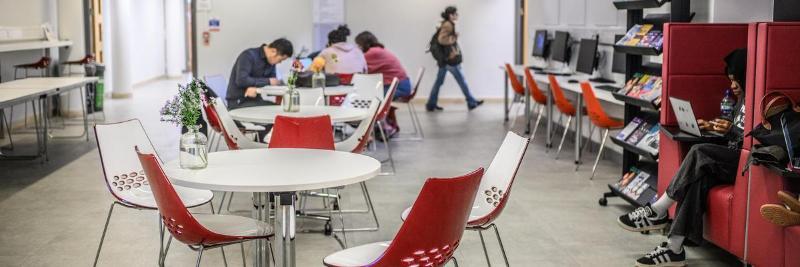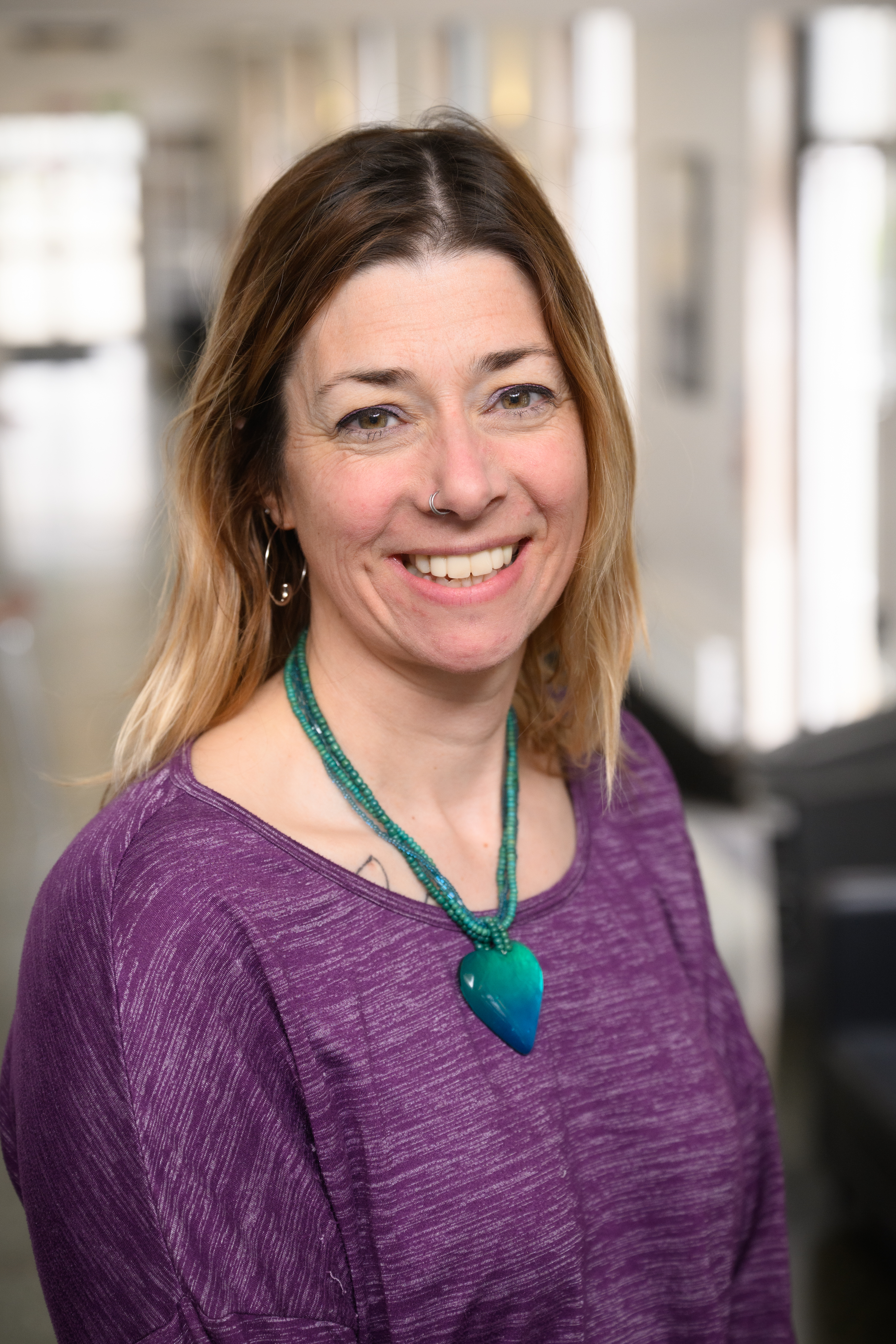Improving inclusion of disabled and neurodiverse students in Biological and Biomedical Education

In collaboration with
This innovative project developed a student-centred workflow for support in biological and biomedical sciences. It fosters direct collaboration between students, academic staff, and professional services to create tailored, practical adjustments. By involving students in discussions about their access needs, the approach ensures solutions are empowering and aligned with programme requirements.
Responding to a need
The number of students with declared disabilities, mental health conditions or other neurodiversity is growing annually within Higher Education and therefore providing truly inclusive education is more important, and more challenging, than ever before. In UK Secondary Education, 19.5% of students are now recorded as having Special Educational Needs or Disabilities (SEND)1. This trend is mirrored in Higher Education, where the number of students declaring disabilities or specific learning differences has increased by 47% between 2014/15 and 2019/202,3, and continues to increase. Notably, 21.6% of students disclosed a mental health condition in 2023/24, quadrupling in frequency compared to 2013/144.
Inclusivity is also at the heart of the Queen Mary University of London 2030 strategy, and the broader regulatory framework set out by the Office for Students and Equality Act, which places a legal responsibility on universities to ensure that all students are given equal opportunity to engage in their studies5,6
In Higher Education, these students are typically supported via a Professional Services department, such as the Dyslexia and Disability Service, who create a student support summary which is then sent to the academic school for implementation. However, the summaries are often found to be too generic, or impractical to implement in the context of a biological sciences degree where students complete field work or spend time in laboratories. The result of this is that reasonable adjustments are often inconsistently or ineffectively implemented for the student, and therefore students become excluded from their studies7.
To address this problem, we created a bespoke school-level workflow that places individual students at the centre of all conversations about their support needs. This approach involves direct collaboration between students, academic staff, and colleagues in professional services to develop tailored reasonable adjustments that work effectively within the specific requirements of biological or biomedical sciences programmes. This approach gives students agency in discussions about their access requirements, ensuring that solutions are both practical and empowering.
The Approach
On receipt of a Student Support Summary document from Professional Services, the student is contacted by the School Disability Support Officer (Dr Ruth Rose) and invited to a meeting to discuss their specific needs and requirements. This academic role was created as part of this new workflow to recognise the importance of subject specific knowledge in designing reasonable adjustments and providing a formal connection between central university disability services and academics who deliver the programme of study. In this meeting, the student is invited to share what would improve their degree experience and how they feel they could be better supported. During these conversations, we explore existing and prior support, assess the efficacy of current arrangements, and begin a collaborative process to co-create a bespoke support plan that can be implemented within the context of the student's degree programme. During this initial meeting, we always recognise that the student may not yet have established trust with the school, so we ensure they understand our role and how it differs from their Dyslexia and Disability Service advisor's role.
Following these conversations, information is fed back to the central university disability services to seek professional advice where required, share concerns, or discuss practices that the student has suggested may be effective. Within the school, we then work to put these practices into action by supporting our module organisers, teaching technicians and demonstrators to make reasonable adjustments in their teaching to better accommodate students. Commonly used adjustments include providing a quiet corner in the school teaching laboratories and rearranging timetabled classes, when possible, to better suit external healthcare commitments. Often, adjustments are as simple as reminding staff of the student's needs, ensuring the student feels recognised by educators, and empowering students to ask for additional support when required. This approach ensures that recommended adjustments are deliverable while recognising each student's individual needs and unique challenges. It also empowers students by giving them a voice in shaping their own support.
In addition to working with individuals, we have established a weekly drop-in session held on Wednesday afternoons. For many students with additional needs, this session has proven to be invaluable in providing a place to share their experiences and have a weekly check-in with the school. During these sessions, students share their successes (attending entire workshops, succeeding in an assessment, or enjoying a practical class for the first time) and discuss where things could have gone better. By reflecting on these experiences, both students and staff can identify routes to better support students and recognise examples of good practice for wider implementation.
The drop-in space has also enabled students who are more experienced in managing their conditions and comfortable with their diagnosis to support students who are more recently diagnosed or still considering whether diagnosis is right for them. This has created a co-curricular space for peer-to-peer support that validates the experiences of others, enables sharing of approaches to common challenges, and celebrates one another's successes.
Thank you for everything you have done to help me this year. Your advice and support has kept me from exploding from anxiety. I cannot express how much I appreciate it.— Queen Mary student
Impact
The implementation of our student-centred approach to reasonable adjustments has had significant positive outcomes for student engagement and wellbeing, with students remaining engaged in their education when they would previously have been likely to disengage or withdraw from their programme of study. Weekly drop-in sessions are attended by between 15 and 20 students, including during exam periods. Students have shared success stories including participating in previously inaccessible practical laboratory classes, attending lectures in busy Whitechapel, and enjoying group work in Peer Led Team Learning sessions for the first time. We have also witnessed students thriving in classes and excelling in assessments that once triggered severe anxiety or would have been previously inaccessible. Measuring the impact of this approach on individual students is challenging, as previously neurodiverse students have struggled through their degree and graduate, however this comes at the expense of their own wellbeing and academic success. For this reason, whilst the progression rates of students may remain largely unchanged, the enjoyment and satisfaction students experience has significantly increased as can be evidenced by the many unsolicited comments from students shared with the school and the University Senior Executive Team. We can also take assurance from the fact that students have continued to engage with the school’s workflow and drop-in sessions, despite them being entirely optional, and students have been able to attend and engage in teaching spaces that have previously been inaccessible or highly overwhelming.
The school has significantly increased engagement of neurodiverse and disabled students in laboratory classes, through the provision of power-assisted doors into buildings, dark safety glasses to reduce overstimulation in teaching laboratories, and the creation of "quiet corners" that students can use to take a break during practicals when they require it. These quiet corners have provided invaluable support, with the corner being used by at least one student in almost every practical class within the academic year, giving students space to regulate and rest. This has also reduced pressure on teaching staff by reducing the risk they experience overwhelmed students who require intervention.
In addition to laboratory work, this approach has supported students to participate in fieldwork, both locally, nationally and internationally where previously their attendance would have been impossible due to the constant and high levels of continual stimulation, lack of predictable resting times and the general unpredictable nature of working in the open environment.
Beyond academic improvements, this approach has created a community of students who support one another by sharing personal experiences and coping strategies. These peer networks have supported students to seek help from university professional services and to champion each other through their degrees. By recognising students as individuals with unique needs, the school has built trust that enables students to disclose challenges affecting their studies beyond those normally disclosed to schools. By creating spaces where students can share their concerns openly, students can be signposted to support quickly, and the school can ensure that students are also supported within their programme of study.
Perhaps the most notable impact of this work at the level of the school is the improved communication, within appropriate professional boundaries, between the Advice and Counselling Service, the Disability & Dyslexia Service, the School and external services including the NHS. Students now receive a “proactive and co-ordinated approach” with every part of the university working together, as noted by an NHS partner. University professional services have also commented that this approach has significantly improved their relationship with the school, reducing the number of concerns with non-implementation of adjustments and improved two-way dialogue. This enhanced collaboration enables the school to respond effectively to student needs, learn from experiences, and implement best practice across our educational provision, while ensuring that all parts of the university work cohesively and that students receive a coherent and unified approach to support.
I'm really grateful for all the help that you've given me because I've been avoiding getting help for quite a few issues for a while and now I feel like I'm going to get the help I needed.— Queen Mary student
Recommendations
- Open, two-way dialogue between university professional services and schools are essential for creating comprehensive wrap around support for students.
- Students need to be seen as individuals and not through the lens of their diagnosis or student support summary alone.
- Being open and accepting that you will get things wrong and sometimes getting support right takes time, but a two-way dialogue with students ensures that the student is still supported. You won’t get it right first time, and that’s okay.
References
- Department for Education. Special educational needs in England, Academic year 2024/25 - Explore education statistics - GOV.UK [Internet]. 2025 [cited 2025 Aug 8]. Available from: https://explore-education-statistics.service.gov.uk/find-statistics/special-educational-needs-in-england/2024-25
- Higher Education Statistics Agency (HESA). Who’s studying in HE? | HESA [Internet]. 2025 [cited 2025 Aug 8]. Available from: https://www.hesa.ac.uk/data-and-analysis/students/whos-in-he
- Hubble S, Bolton P. Support for disabled students in higher education in England. Number [Internet]. 2021 [cited 2025 Aug 8];8716. Available from: https://commonslibrary.parliament.uk/research-briefings/cbp-8716/
- Lewis J, Stiebahl S. Student mental health in England: Statistics, policy, and guidance [Internet]. 2025 [cited 2025 Aug 8]. Available from: https://researchbriefings.files.parliament.uk/documents/CBP-8593/CBP-8593.pdf
- Office for Students. Conditions of registration - Office for Students [Internet]. Office for Students; 2022 Dec [cited 2025 May 13]. Available from: https://www.officeforstudents.org.uk/for-providers/registering-with-the-ofs/registration-with-the-ofs-a-guide/conditions-of-registration
- Office for Students. Securing student success: Regulatory framework for higher education in England [Internet]. 2022 [cited 2025 May 13]. Available from: https://www.officeforstudents.org.uk/publications/regulatory-framework-for-higher-education-in-england/
- Beck S. Evaluating the use of reasonable adjustment plans for students with a specific learning difficulty. British Journal of Special Education [Internet]. 2022 Sep 1 [cited 2025 Aug 8];49(3):399–419. Available from: https://doi.org/10.1111/1467-8578.12412
